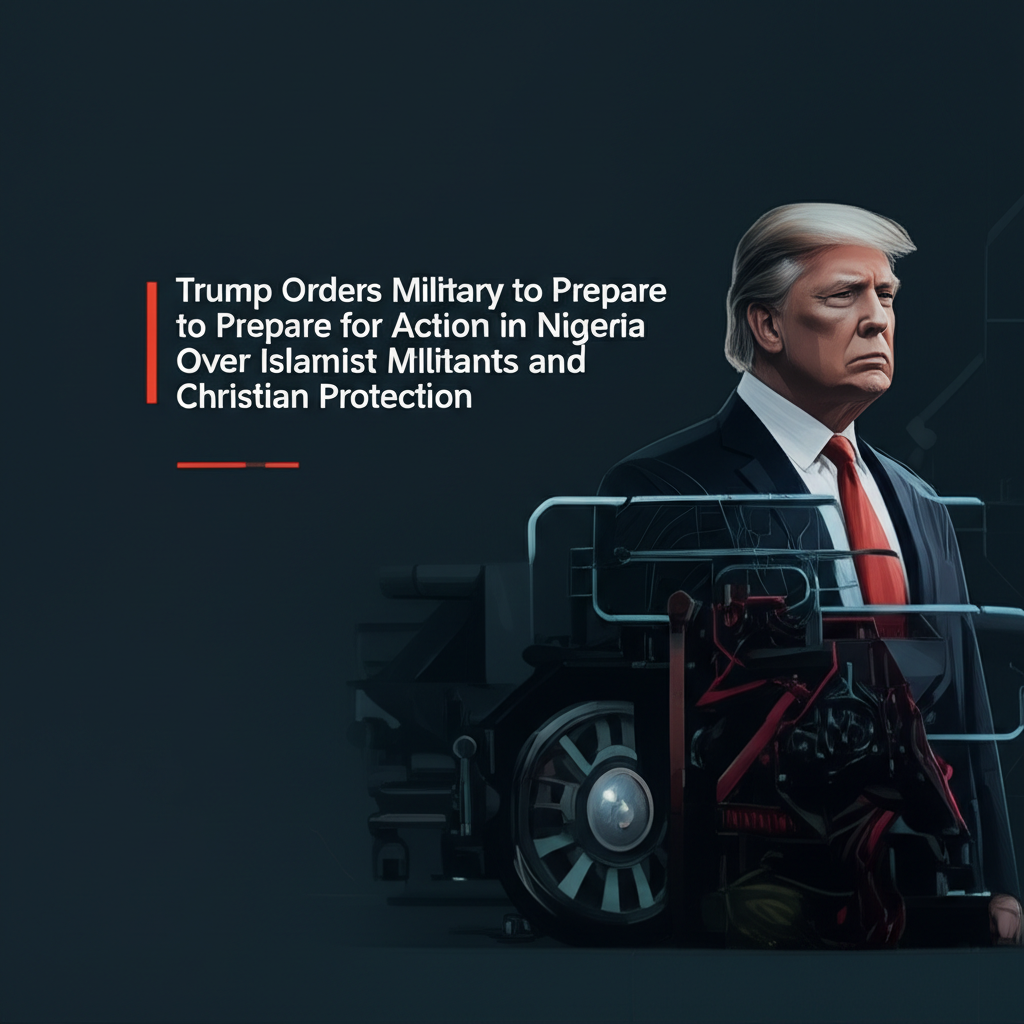Trump Orders Military to Prepare for Action in Nigeria Over Islamist Militants and Christian Protection
A Bold Directive Ignites Debate on Intervention and Sovereignty

In a move that has quickly garnered international attention and sparked considerable debate, former US President Donald Trump has issued a directive to the US military: prepare for potential action in Nigeria. The stated objective is to address the persistent threat posed by Islamist militant groups and, critically, to ensure the protection of Christians whom Trump accuses the Nigerian government of failing to safeguard. While the precise nature and scope of this 'action' remain unspecified, the announcement itself carries significant geopolitical weight and opens a new chapter in the complex relationship between the two nations.
The Rationale: Protecting Christians and Combating Extremism
President Trump's directive stems from a stated concern over what he perceives as a dire situation for the Christian minority in parts of Nigeria, particularly in regions affected by insurgencies. He explicitly criticized the Nigerian government, alleging its inability or unwillingness to adequately protect its Christian citizens from violence perpetrated by Islamist militant groups. This accusation, while reflecting a specific perspective, highlights the deeply entrenched challenges of religious and ethnic tensions that have long plagued certain areas of the West African nation.

The move also aligns with a broader US foreign policy objective of counter-terrorism, particularly against groups like Boko Haram and ISWAP (Islamic State's West Africa Province), which have wreaked havoc in Nigeria's northeast and increasingly in other regions. Trump's order, therefore, frames a potential intervention as a dual-pronged effort: safeguarding human rights and enhancing regional security.
Unpacking the Implications: What Could 'Action' Mean?
Without specific details, the term 'action' leaves a wide spectrum of possibilities open for interpretation. It could range from enhanced intelligence sharing and logistical support to joint training exercises, or even more direct military involvement such as air support or special forces operations. Any form of military intervention, however, carries significant risks and diplomatic complexities.
Such an order invariably triggers discussions about national sovereignty, the principle of non-interference in internal affairs, and the potential for unintended consequences. Historically, military interventions, even those with humanitarian pretexts, have often led to prolonged engagements and unforeseen challenges. The international community, particularly African nations, will be closely watching for further clarification and potential reactions from Abuja.

The Nigerian Context: A Persistent Battle Against Extremism
Nigeria has been battling Islamist militant groups for over a decade, with Boko Haram initially and now ISWAP posing formidable threats to its national security. These groups have been responsible for mass kidnappings, suicide bombings, and widespread displacement, particularly in the northeast. The conflict has claimed tens of thousands of lives and displaced millions, creating one of the world's most severe humanitarian crises.
While the Nigerian military has been actively engaged in counter-insurgency operations, their efforts have often been criticized for their effectiveness, human rights record, and capacity. The accusations of failing to protect Christians resonate with reports from various human rights organizations that have documented attacks on both Christian and Muslim communities by these extremist groups, as well as inter-communal violence that sometimes takes on religious dimensions.
Looking Ahead: A Test of Diplomatic Relations
This directive places significant pressure on diplomatic relations between the US and Nigeria. While the US has historically provided assistance and training to the Nigerian military, a direct order for military preparation suggests a potential shift towards a more assertive stance. The Nigerian government's reaction will be critical, as it balances its sovereign pride with the urgent need to address security challenges.
The coming days and weeks will undoubtedly see intense discussions, both publicly and behind closed doors, as both nations navigate this complex issue. The ultimate goal, for many, remains stability and peace in Nigeria, achieved through effective strategies that respect sovereignty while addressing the grave humanitarian and security concerns.

Conclusion: A Crossroads for US-Nigeria Engagement
Donald Trump's order for the US military to prepare for action in Nigeria marks a critical juncture. It underscores the severity of the threat posed by Islamist militant groups and brings to the forefront the sensitive issue of religious persecution. The path forward will require careful consideration, delicate diplomatic relations, and a clear strategy to ensure that any intervention genuinely contributes to lasting peace and security for all citizens of Nigeria.





